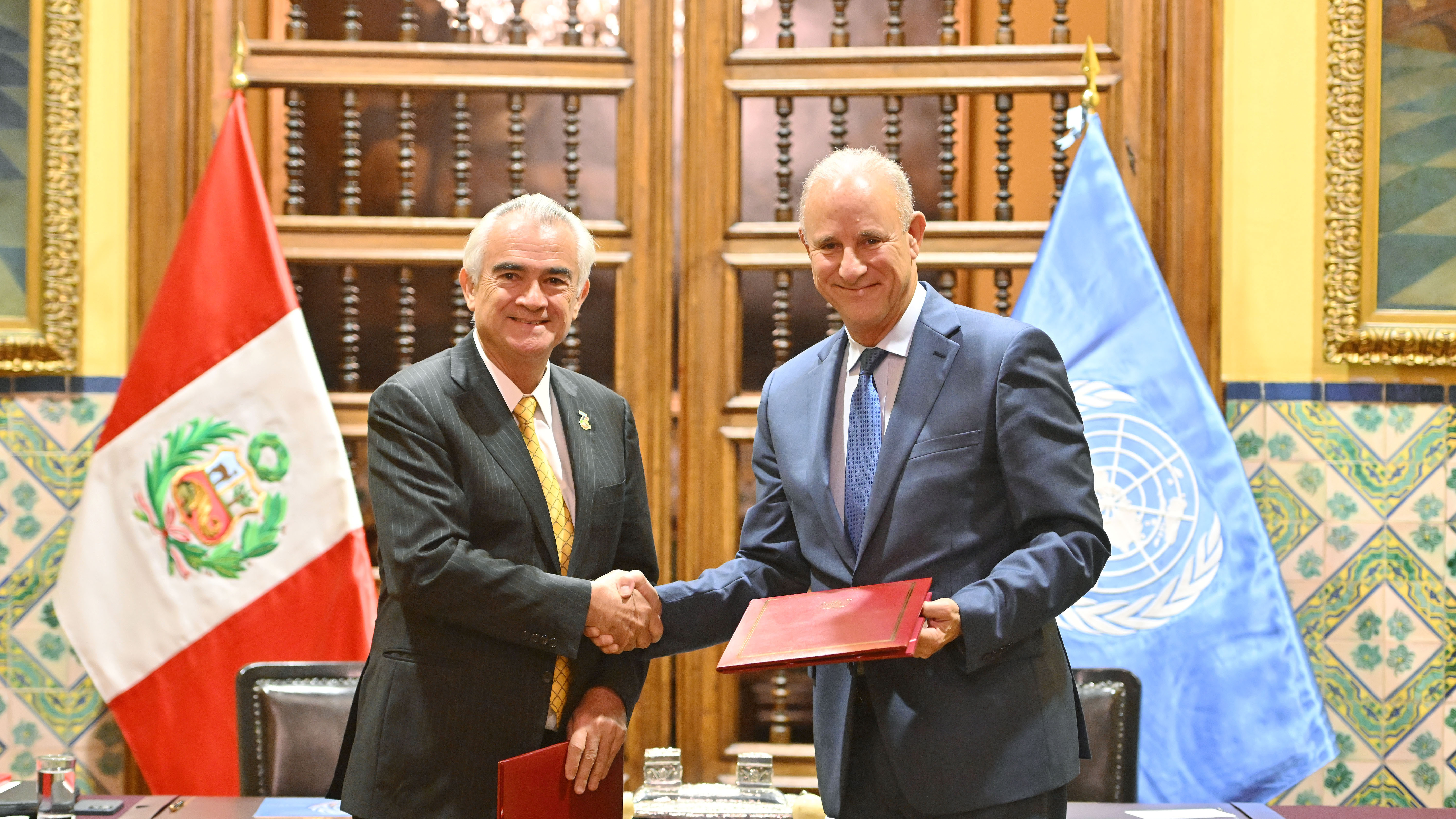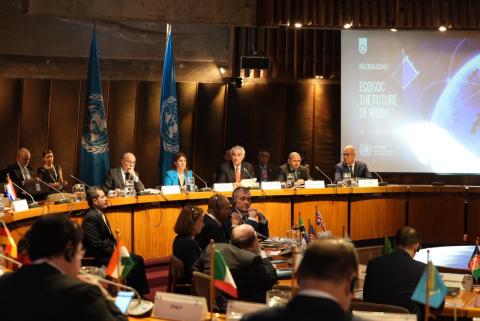Press Release
The Fortieth Session of the Economic Commission for Latin America and the Caribbean (ECLAC), which is its most important biennial meeting, will take place on October 8-11, 2024 in Peru, according to an agreement signed by the country’s Minister of Foreign Affairs, Javier González-Olaechea Franco, and the United Nations regional economic commission’s Executive Secretary, José Manuel Salazar-Xirinachs.
The accord penned this Tuesday, March 26 in Lima specifies the commitments assumed by both parties for organizing this international gathering, in which authorities from ECLAC’s 46 Member States and 14 associate members will participate along with representatives of the United Nations system and non-governmental organizations.
At the event, countries will have the opportunity to debate about the region’s economic, social and environmental development, to review the activities carried out by the Commission during the prior two-year period, and to set the priorities for its programme of work for the next two years.
In addition, the meeting will mark the start of Peru serving as Chair of ECLAC, a role that will extend until the next session (in 2026), as well as the end of the period presided by the current Chair, which is the Government of Argentina (for having hosted the 39th session, which took place in Buenos Aires in 2022).
As established practice would have it for each session, the Secretariat of ECLAC is preparing a position document that will be presented as an input for the meeting next October and that will serve to motivate an analysis of the main development challenges of the region’s countries at this very particular time in our history and in the world.
José Manuel Salazar-Xirinachs explained that this document will comprehensively address 11 major areas of substantial challenges that ECLAC has identified and that correspond to what the institution is calling the 11 major transformations that the region needs in order to change its development model.
These areas of transformation, which mutually reinforce each other for advancing towards a more productive, inclusive and sustainable development model, are: 1) A major productive transformation; 2) The challenge of reducing inequality and increasing social mobility; 3) That of improving social protection systems; 4) As well as education and vocational training; 5) Moving towards gender equality; 6) Promoting an environmental big push to advance towards sustainability and tackle climate change; 7) The digital transformation; 8) Promoting safe, orderly and regular migration; 9) Strengthening regional economic integration; 10) Ensuring healthy and strong taxation/fiscal system; and 11) Strengthening governance, along with institutions’ technical, operational, policy and foresight capacities. “This last point refers to the strong emphasis we are putting on the ‘how’ of managing all these transformations,” ECLAC’s Executive Secretary indicated.
“I am very pleased to return to Lima, a city I lived and worked in for nearly four years, to sign this Host agreement and to be able to celebrate ECLAC’s fortieth session here in October of this year. I thank Peru for offering to be the host country for this gathering,” the senior United Nations official stated.
Meanwhile, Peruvian Foreign Minister Javier González-Olaechea pointed up the substantive contribution that ECLAC has made over its 75 years in existence. “There are few institutions that have produced so much, and so well, for the region. That is reflected in the very rich thematic agenda and these eleven points that we are going to address,” he said.
“We are losing sight of what should be the next destination of humanity itself and of the region. We are a region of peace. But the absence of war does not necessarily mean peace. And to understand better what ‘peace’ is, we must refer to the peace of conscience and the peace that we have not attained because in some cases, gaps of all kind have increased, like the technological-digital divide, for example. We at the Foreign Ministry have placed great hope in this very special gathering,” Minister González-Olaechea indicated.
ECLAC’s Executive Secretary was accompanied on his trip to Lima by the Secretary of the Commission, Luis Fidel Yáñez.



